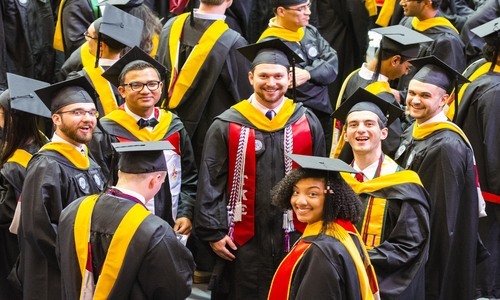Integrative & Global Studies

WPI’s Department of Integrative & Global Studies (DIGS) is a unique academic department that functions as a gateway for students and faculty to connect with and make a difference in communities around the world.
As part of The Global School at WPI, the department serves three vital components of WPI’s project-based learning model. The Great Problems Seminar gives students and faculty the opportunity to combine disciplinary lenses to explore holistic approaches to global problem solving. The Interactive Qualifying Project is a distinctive interdisciplinary project experience that challenges students to examine the impact of science and technology on society to address social issues and human needs. The Global Projects Program is WPI’s signature study- and work-away program.
Building on WPI’s distinctive interdisciplinary, project-based approach to education, a Community Climate Adaptation (CCA) Master’s program—a joint program between the Department of Civil and Environmental Engineering and DIGS—offers students training to support communities and organizations as they adapt to the impacts of a changing climate around the globe. Students also have the opportunity to pursue Individually Designed Interdisciplinary Majors that are approved, supported, and overseen through the department.
Through DIGS, new research and academic programs will continue to emerge and develop through a dedication to interdisciplinary research with real-world impacts.
Tackling the World's Problems
In the Great Problems Seminar (GPS), first-year students tackle some of the world’s most pressing problems, helping them to develop the skills, knowledge and confidence needed not only for the rest of their college career, but for life. This two-term, introductory project-based course—taught by two professors from different disciplines—allows students to step outside their disciplines, work in teams, and delve into issues of global importance.

Project Immersion: Bar Harbor
WPI students aren’t your typical learners, and the Interactive Qualifying Project (IQP) is not your typical study abroad. Each term, students and faculty members travel to one of more than 50 project centers around the world to put theory into practice. Follow 20 students and one faculty member as they travel to Bar Harbor, Maine and embark on a distinctive immersive project experience working with a local sponsoring organization.
Student Voices

WPI Recognized as Gilman Top Producing Institution
The Benjamin A. Gilman International Scholarship supports undergraduate U.S. citizens of limited financial means to study abroad with the goal to “reshape study abroad to make it more accessible and inclusive for American students.” WPI was named a Top Producing Institution for the 2018—2019 academic year, earning additional recognition as a top producer of STEM students as well among medium-sized colleges and universities that produced scholarship winners.

WPI Receives 2019 Seal of Excellence for Commitment to Generation Study Abroad
Since 2016, IIE has recognized the U.S. colleges and universities that have made strategic commitments to the Generation Study Abroad initiative and achieved their goal of increasing the number of U.S. students studying abroad from their campus before the end of the decade. This year, 28 campuses, including WPI, were recognized by IIE for meeting their Generation Study Abroad commitments and successfully increasing the numbers of students participating in study abroad.
Announcements
See More AnnouncementsGlobal Impact

Soaking Up the Culture While Doing Research in London
Many students drawn to the London project centers have a passion for the arts and are eager to soak up all the theatre, literary history, and culture they can in their spare time.

Cultural Buddy System Connects Students in Taiwan
Taiwan is ideal for a WPI project center, where students tackle Interactive Qualifying Projects connecting society and technology.

A Sweet, Interdisciplinary Experience
The Switzerland Project Center is one of the few to host both Interactive Qualifying Projects (IQP) and Major Qualifying Projects (MQP).

Student Project: Living With Fracking in Albania
This student team won first place in the President’s IQP Awards for their project highlighting fracking’s impact on women in Albania
Alumni Impact

Sol Giesso ’23, MS ’24
Educating and Empowering to Fight Climate Change
More the the University Magazine

The Science of Teaching and Learning
A growing number of WPI faculty are dedicating research efforts to studying—scientifically and empirically—how people learn or how to help people learn.
Faculty Snapshot

Katherine Foo
Get to know Assistant Professor of Teaching through items found in her office.

Sarah Strauss
Professor of Anthropology in the Department of Integrative and Global Studies

Sarah Stanlick
Assistant Professor, Department of Integrative and Global Studies; Director, Great Problems Seminar

Advance with the BS/MS Dual Degree Program
Fast-track your education and career with the BS/MS program by earning a dual degree―an accelerated academic pathway to both a bachelor’s degree and a master’s degree. Saving both time and money while building advanced knowledge and skills could help you stand out in today’s competitive job market. Discover more about the BS/MS program and your options to earn a BS/MS dual degree at the links below.

